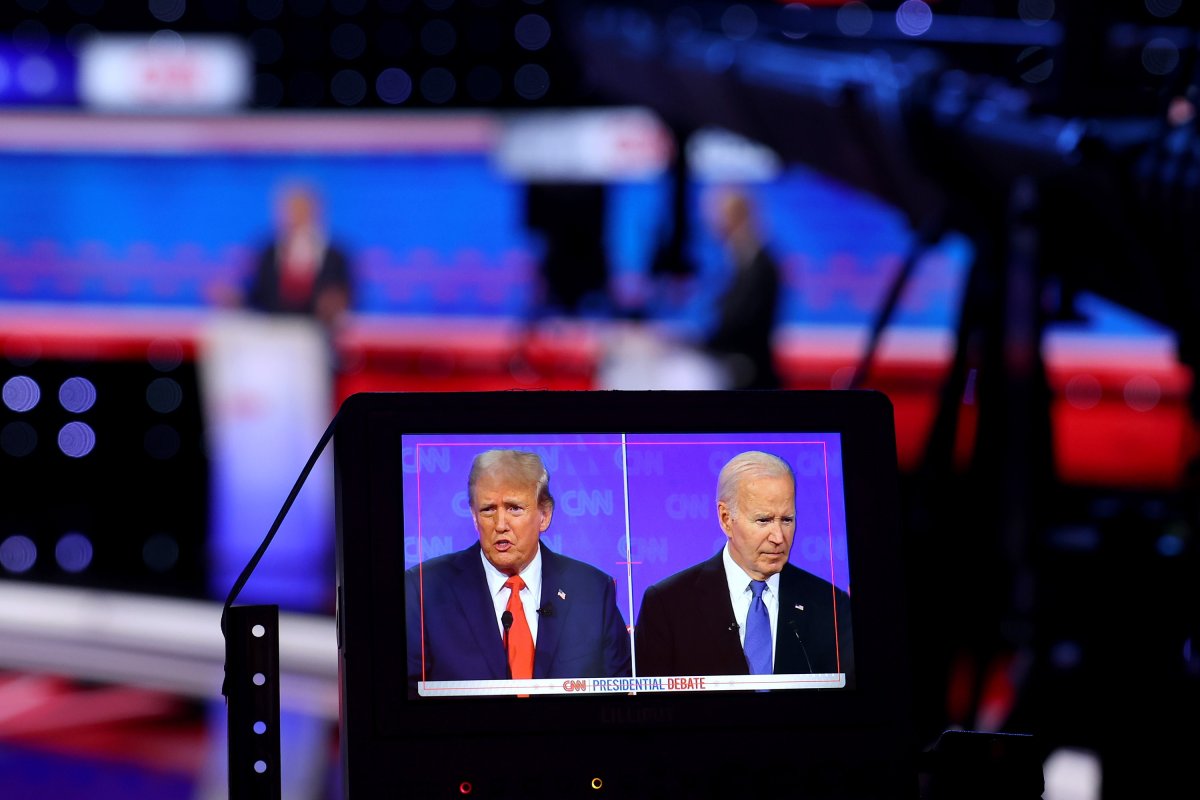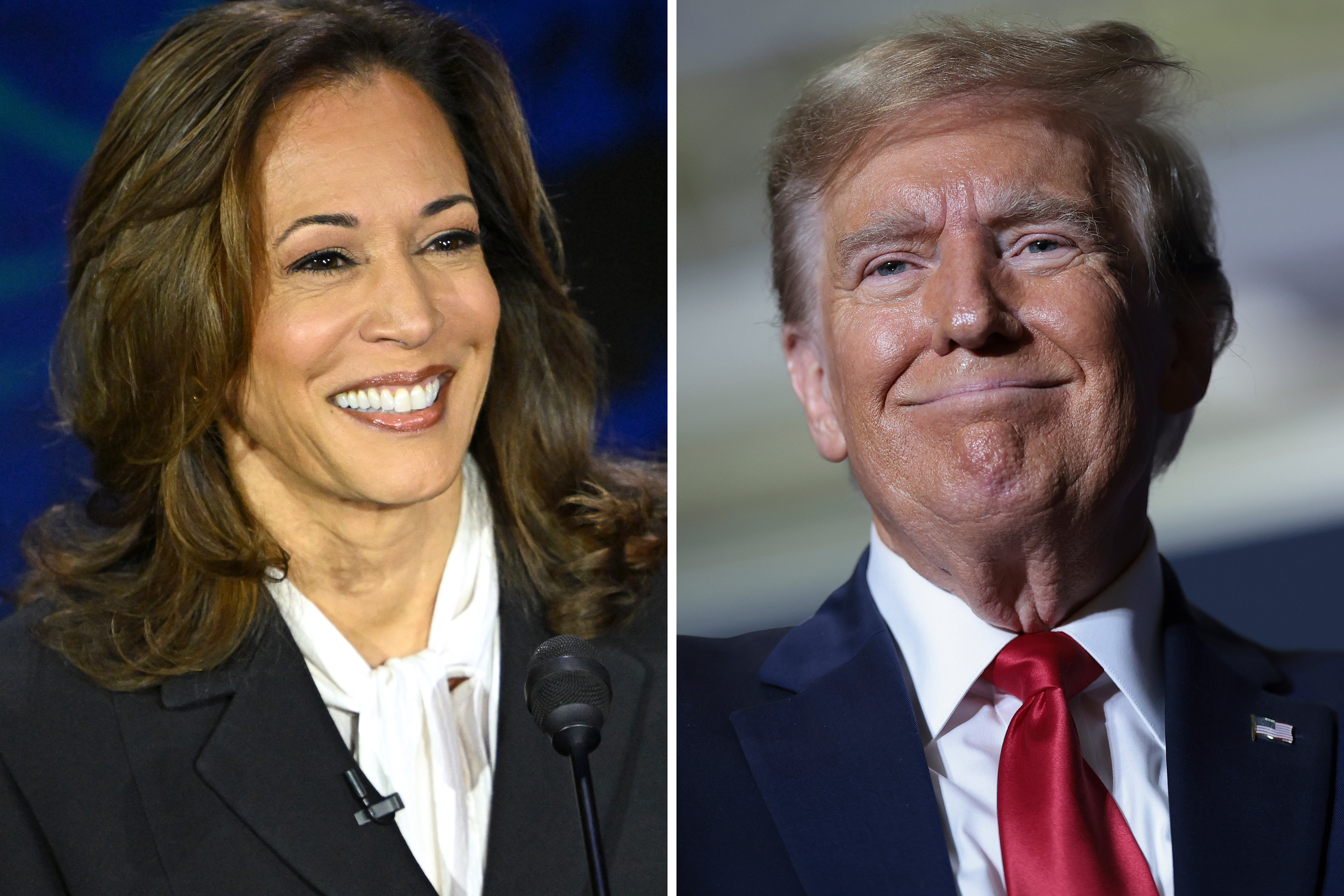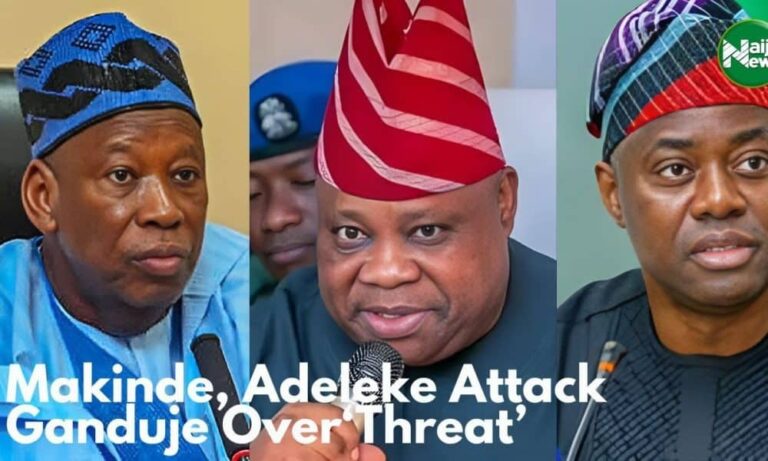Donald Trump Ruling Out Another Debate Could Be Gift to Kamala Harris
Former President Donald Trump declining to do another debate before the November 5 presidential election could be a gift to Vice President Kamala Harris, political experts told Newsweek.
Trump wrote in a Truth Social post on Thursday that he will not be debating Harris again, just days after an ABC News debate in which Harris was widely perceived as the winner.
The two candidates sparred over issues including the economy, immigration and abortion, but Harris ultimately appeared to succeed at getting under Trump’s skin by making jabs about his legal woes and the size of his campaign rallies.
The Harris campaign, meanwhile, called for a second debate shortly after the first ended.
Harris may have benefited from the first debate, as polls suggest she has gained ground against Trump since Tuesday, but analysts who spoke to Newsweek saidTrump’s refusal to do a second debate against Harris may be beneficial to her.
Newsweek reached out to the Trump and Harris campaigns for comment via email.
SAUL LOEB/AFP via Getty Images; Win McNamee/Getty Images
Aaron Kall, director of the University of Michigan’s debate program, saidthat Trump may be giving Harris her “ideal scenario.”
“The ideal scenario could be that she calls for the debate and Trump doesn’t do it. That’s always been the best of all worlds. She can show that she’s a confident debater and has no problem doing another one or so. It makes her look strong and presidential, where it goes against his mantra of strength,” he said.
It is unlikely Harris would be able to “entirely replicate” her strategy from the first debate or “do better,” Kall said, adding he was surprised at how quickly the campaign called for another showdown.
Another debate may also pose a logistics challenge for Harris, Kall said. The Democratic candidate spent the week ahead of the debate preparing, rather than touring key battleground states and connecting with voters, many of whom say they still want to see and hear more of Harris. A debate closer to Election Day may require her to sacrifice time on the campaign trail or risk her being less prepared onstage.
Tatishe Nteta, a professor of political science at the University of Massachusetts, Amherst who also oversees the institution’s polling operation, told Newsweek that not having a second debate is a “win-win” for both candidates.
For Trump, a second debate could end up being a repeat of Tuesday, and it would not make strategic sense for him to “put himself out there to potentially be embarrassed for a second time” and “bolster the potential that Harris is an able presidential candidate,” Nteta said.

Kevin Dietsch/Getty Images
But a risk for Harris is that she may not live up to the “very lofty expectations” created by her performance in the first debate, he added.
In a second debate, Harris may also face more intense questioning from moderators about specifics on her policies, Grant Davis Reeher, a professor of political science at Syracuse University, told Newsweek, adding that it’s better for Harris to let the first debate stand on its own and stay in voters’ minds.
“There might be more effort by the moderators to get specific answers from her about her own policies, which have been lacking, and Trump would likely be better about pushing her on details,” he said.
“He certainly couldn’t get any worse.”
“[Trump’s] performance in the first one was a disaster, and I think even he knows that. If there was a second debate in which he was more disciplined, less unhinged, and more able to focus attention on the great murkiness surrounding Harris’s plans for the future, why she’s changed positions so dramatically from 2020, and why she wouldn’t play to the more liberal wing of the party, it would help him,” Reeher said.
Meanwhile, Kall noted that moderators of another debate may be less willing to fact check Trump on some of the untrue claims he made during the debate about abortion and migrants in Springfield, Ohio eating peoples’ pets. Trump may also do a better job in future debates of tying his opponent to the unpopular Biden administration — an opportunity that many say Trump failed to capitalize on Tuesday.
A CNN flash poll found that 63 percent of respondents said Harris won that debate, compared to 37 percent who believed Trump won, a contrast from Trump’s debate against President Joe Biden in June, when most viewers believed the former president had won.
The early post-debate polling appears to back that up. A Reuters/Ipsos survey, conducted among 1,405 registered voters from Wednesday to Thursday, found Harris with a 5-point lead over Trump (47 percent to 42 percent), up a point from last month.
A Morning Consult survey, which polled 3,317 likely voters on Wednesday, also found Harris with a 5-point lead following the debate (50 percent to 45 percent), also up a point from before the debate.
If Harris and Trump do not participate in a second debate, it would mark the first time the presidential nominees only participated in a single head-to-head matchup. Typically, presidential candidates participate in three debates, though some election cycles have seen a fewer number.

Justin Sullivan/Getty Images
In 2020, Biden and Trump only debated twice. A third debate was scheduled but canceled after Trump tested positive for COVID-19. Trump debated former Secretary of State Hillary Clinton three times in 2016.
The last time there were only two debates was 1996, when former President Clinton ran for reelection against Bob Dole. The first televised debate was in 1960 between John F. Kennedy and Richard Nixon. They debated four times, with Kennedy ultimately winning that election, though Nixon would become president eight years later.
There were no debates in the next few elections, until 1976 between Gerald Ford, then the president, and Jimmy Carter, who won that year’s election.
While another debate now appears unlikely, Harris is expected to ramp up her appearances in key swing states over the coming weeks.
On Thursday, Harris campaign in Charlotte and Greensboro, North Carolina before barnstorming Pennsylvania on Friday. Her campaign also told Politico and NBC News she will start doing more media interviews, amid criticism that she has appeared walled off since becoming the nominee.
Reeher, from Syracuse, called it “striking to stand back and recognize that we have had very little press exposure—beyond just covering the rallies—to VP Harris.”
This election cycle is also notable for its lack of primary debates.
Trump declined to debate his Republican rivals, citing his strong polling lead in the primary. Meanwhile, there were no debates on the Democratic side, as Biden was presumed to be the likely nominee at the time. Some Democrats, including author Marianne Williamson and Representative Dean Phillips, challenged Biden but struggled to gain traction.
If another debate eventually takes place, Trump would need to “self-scout,” Nteta said.
“[He needs to] recognize the mistakes that he made in the first debate. Work on this mistakes, and then reengage in a way, and attack her in a way that allows the Americans to see her deficiencies,” he said.
While Harris’ debate strategy may have succeeded, she would need to “tweak” her game plan to find new ways to spark an “emotional reaction” from Trump, which may remind undecided voters of the traits they like least about the former president, Nteta said.
“The likelihood of having a second debate is very, very low here. It just doesn’t seem like it’s in the strategic interests of either candidate to have a second debate,” he said, noting that Harris will want to leave voters thinking she won the only debate, and that Trump may be afraid of losing another.
In the meantime, their vice-presidential candidates will meet for a single debate next month, hosted by CBS News.







